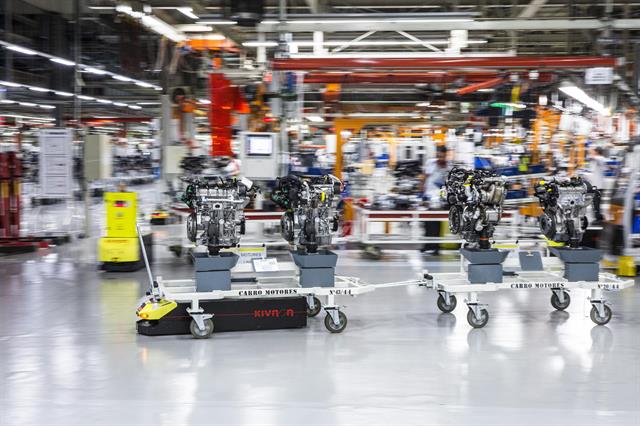 Wouter Satijn
Wouter SatijnWouter Satijn is sales director at Joloda Hydraroll.
The journey to net zero is accelerating for logistics organisations, supported by the introduction of low-emission schemes and an increase in sustainable technology developments. The question is: how can businesses embrace more environmentally friendly warehouse facilities and equipment, and ensure they unlock maximum value?
Waste management
A recent report conducted by Joloda Hydraroll found that waste reduction is the biggest issue to affect businesses (41%) – higher than sustainable energy sources (31%) and greenhouse gas emissions (20%). The research also found that waste management is a priority for materials handling and intralogistics companies, with it being included in nearly two in three business objectives. This statistic rises to 76% of managers and 83% of those in retail distribution, highlighting the steps organisations have taken in response both to the rise in eCommerce and stakeholder awareness, particularly in areas such as consumer packaging.
Packaging is a key area of opportunity for logistics businesses to become more environmentally friendly, and is now an important consideration for clients and prospects; for example, reducing the use of single-use plastic packaging when shipping products.
Waste management is an area of ‘environmental business’ that is well established, with specialist companies offering turnkey solutions to dispose of waste responsibly, maximising recycling and minimising the amount sent to landfills. For those companies that actively separate as many single waste streams as possible and have these collected independently, the process can generate additional income through rebates for certain materials, which can be invested into further waste reduction initiatives.
 Automation improves efficiency and productivity - and supports sustainability goal
PHOTO: Kivnon
Automation improves efficiency and productivity - and supports sustainability goal
PHOTO: Kivnon
Reducing carbon emissions
In recent years, there has been a vast increase in global carbon dioxide emissions, which are associated with many environmental damages. Among others, logistics activities in global supply chains have become a major cause of industrial emissions and the progression of environmental pollution – with reports revealing that 13% of carbon emissions in logistics come from warehouse buildings.
Joloda Hydraroll’s research found that just 37% of businesses are committed to reducing greenhouse gas emissions, and 40% to finding sustainable energy sources; instead, prioritising their efforts on the easiest environmental options first. Yet, many companies are unaware of the small changes they can implement to make a big difference. For example, shipping in larger quantities will help to minimise transport emissions, and switching to renewable gas and electricity will reduce carbon emissions.
Automation
Automating processes, such as the loading and unloading of trucks, with solutions such as moving floor, slipchain, or trailerskate loading systems, can not only improve efficiency and productivity but also support companies’ sustainability goals.
Loading and unloading operations are still highly manual, time-consuming and sometimes dangerous. Often, HGV drivers are left waiting for hours, typically with the engine running, and there is a heavy reliance on forklifts to move goods around the loading area. An automated loading and unloading process is not only faster and more efficient, minimising accidents and product damage – but it also requires fewer people and results in less machinery, including trucks, trailers and forklifts.
HGV drivers can be allocated reliable time slots, meaning they are no longer left idling in car parks for hours. An improved turnaround time enables route optimisation to reduce the number of journeys they need to make. All in all, an automated loading and unloading process can significantly reduce the amount of CO2 emissions from operations. It also eliminates concerns regarding the toxicity of lithium ion technology from battery-powered forklift trucks.
Conclusion
With the UK government committed to net zero by 2050, logistics businesses play a pivotal role in achieving this milestone. But it doesn’t mean organisations have to start from scratch. Greener warehouses can be achieved by making incremental changes to existing operations and equipment. Companies can meet sustainable and operational goals in tandem by expanding their understanding of how, where and when environmentally friendly practices can be best deployed across the warehouse.